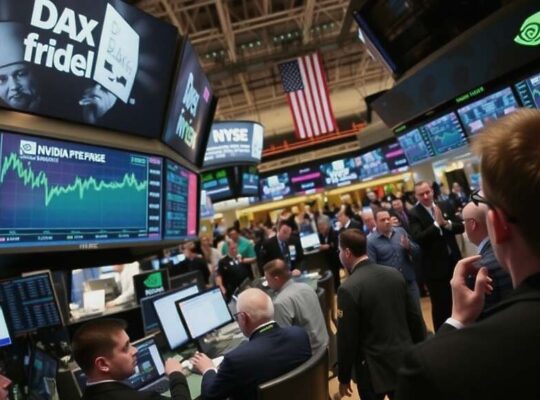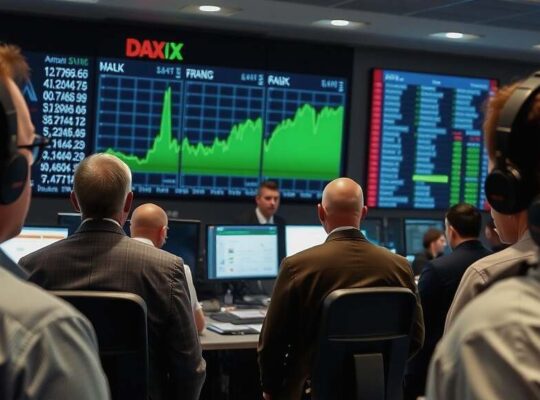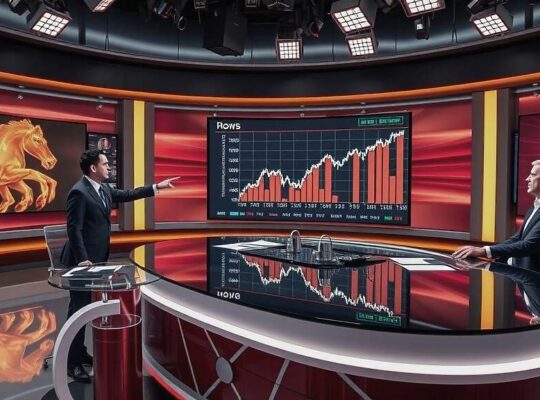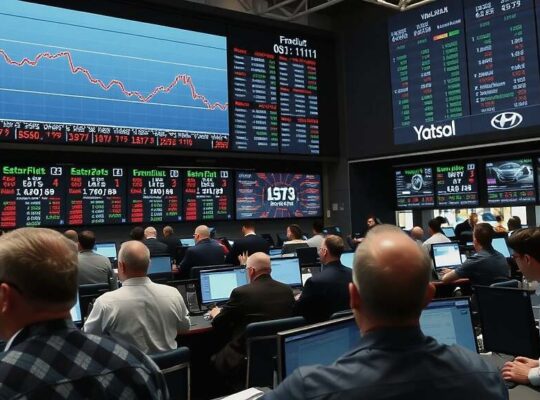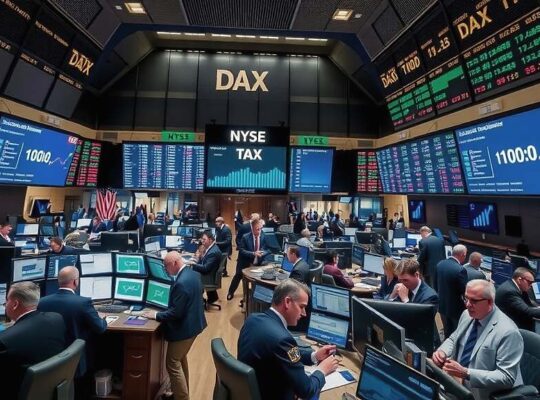German DAX Index Posts Gains Amidst Underlying Concerns
The DAX index in Frankfurt closed Wednesday significantly higher, reaching 24,597 points – a 0..9% increase from the previous day’s close. While the market registered an upward trend throughout the trading day, following a hesitant start, analysts are raising concerns about the sustainability of this momentum.
“No news seems to “be” good news these days” commented market analyst Andreas Lipkow, highlighting a perplexing disconnect between economic realities and investor behavior. “The few bits of data that do emerge – whether it’s disappointing macroeconomic figures from Germany or profit warnings from auto manufacturers – are simply being ignored. Investors appear to have blinders on, fixated on chasing record highs within the DAX.
This observation underscores a potential disconnect between market performance and the underlying health of the German economy, suggesting a driven by speculative fervor rather than a foundation of robust fundamentals. The ongoing issues within the automotive sector, a vital pillar of German industry, are being seemingly brushed aside in the pursuit of escalating indices.
Adding to the concerns, Lipkow noted the dwindling trading volume accompanying the upward trend. “It’s remarkable how trading volume in the DAX continues to dwindle, placing this current rally on somewhat shaky foundations”. This lack of participation from investors raises doubts regarding the conviction behind the positive movement, making the DAX vulnerable to potential corrections. The dependence on US market performance is also highlighted as a critical factor.
Wednesday’s trading session saw Zalando, Adidas and Siemens Energy lead the gainers in Frankfurt, while automotive stocks lagged, with BMW experiencing notable losses. This divergence reinforces broader anxieties surrounding the continued challenges faced by the German auto industry.
Elsewhere, a decline in natural gas prices provides a fleeting moment of relief. Gas for November delivery fell to €33 per megawatt-hour, a 2% drop from the previous day, potentially translating to consumer electricity prices of roughly 8-10 cents per kilowatt-hour if this level persists. However, this is juxtaposed against a significant rise in oil prices. Brent crude climbed to $66.41 per barrel, representing a $0.96 increase, signaling continued inflationary pressures.
The Euro also weakened, trading at $1.1617, highlighting external economic headwinds and anxieties surrounding European monetary policy.
The current market environment points toward a fragile optimism – a situation where superficial gains mask significant underlying vulnerabilities within the German economy and broader geopolitical landscape.



